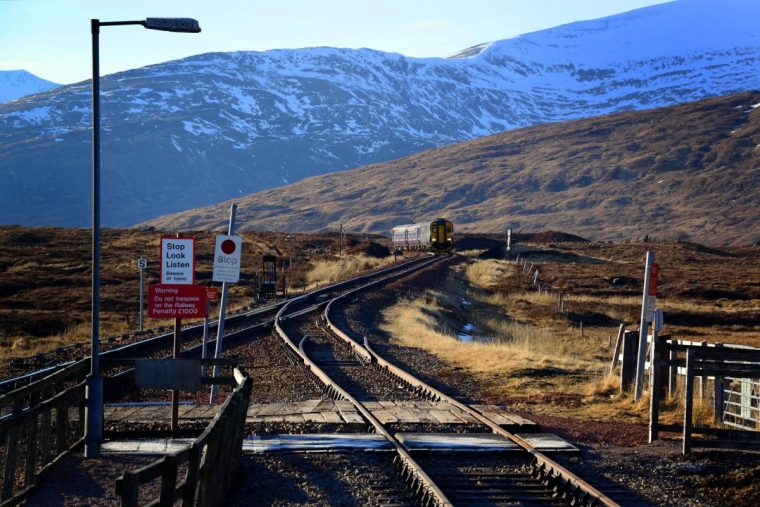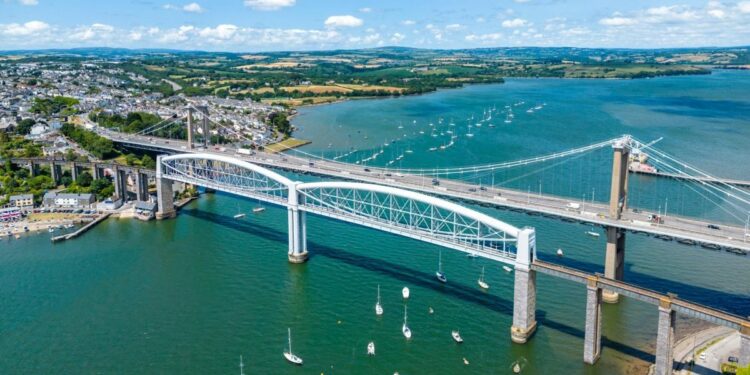While the “dynamic pricing” scandal that tainted the Oasis reunion hints at things to come for the entertainment industry, arguably no other sector has embraced the maddening opacity of the modern era quite like the rail industry. In 2018, according to research from the Rail Delivery Group, there were estimated to be around 55m different train fares in Britain – one for every person living in England. Things haven’t simplified much since. Meanwhile, airline-style pricing means that it’s often much cheaper to book tickets in advance than at the last-minute, meaning we’re penalised for impulsiveness.
Little wonder that rail travellers in Britain look jealously towards Germany (at least when it comes to ticket options, although perhaps not for its efficiency). Its trailblazing Deutschlandticket – offering unlimited rail trips for €49-a-month – launched in May 2023 to help people travel affordably (and sustainably) around the country amid a squeeze on living standards. It was the follow up to a temporary €9-per-month scheme that ran in summer 2022.
The Deutschlandticket is credited with a 28 per cent increase in passenger numbers on regional trains. Inspired, Portugal copied the idea (and is now planning a €20 pass), while France temporarily introduced a similar pass this summer.
Bereft of optimism and having a stinker of a honeymoon, the Labour government could score an easy win by copying the idea. A report published last week, which was commissioned by Greenpeace, estimated that such a pass would generate 122 million extra train trips annually in Britain, 40 million of which would otherwise be done by car.
Its authors recommended excluding intercity services from the offer (Germany excludes most intercity services), claiming that doing so would spread demand across the network, easing overcrowding on busy services. The report added that it may be possible to extend the offer to Northern Ireland (although it said an approach that covered the whole island of Ireland would have much greater customer value).
There is, of course, the inevitable question of funding. Germany announced on Monday that it will increase the price of its Deutschlandticket to €58 per month from January 2025. While it remains to be seen how the state subsidised scheme will be financed long-term (it looks secure until at least 2036), one obvious solution that more people should be talking about would be to tax kerosine, which is used by the aviation industry and exempt from fuel duty everywhere.
 Gavin Haines has been planning how he would use a £49-a-month rail pass in Britain (Photo: Gavin Haines)
Gavin Haines has been planning how he would use a £49-a-month rail pass in Britain (Photo: Gavin Haines)
Discount rail passes funded by a kerosine tax is a no-brainer from a climate point of view. Data from Germany suggests that the €9 version of the Deutschlandticket prevented 1.8m tonnes of CO2 from wheezing out of car tailpipes in the first three months, as people ditched their vehicles and took the train instead.
Greengauge 21 – the non-profit behind the Greenpeace report – reckons a British version would save around 378,000 tonnes of carbon annually. For context, England’s last remaining coal power plant – Ratcliffe-on-Soar, which closes for good next week – belched out 2.7m tonnes of CO2 in 2023.
It all begs a question: what would you do with such a pass? This summer, I fled Blighty via Eurostar’s £39-a-seat summer sale, which was cheaper than taking the train to Devon. My work takes me all over the country by train, but a cheap rail pass would tempt me to explore at leisure, too. In fact, since the Greenpeace report landed, I’ve thought about the scenic railways I’d ride, the friends and family I’d visit. But mostly I’ve found myself thinking back to the carefree months I spent Interrailing around Europe, pre-smartphone, when you could turn up at any station and board the next train to wherever. That’s how I’d use such a pass today: impulsively, whimsically, like it’s 1999.
I’d head north to Scotland, where the railways offer the best bang for buck as far as scenery is concerned; none more so, perhaps, than the West Highland Line, as it meanders past limpid lochs and misty Munros between Glasgow and Mallaig.
 Corrour is among the stops on Scotland’s scenic West Highland Line (Photo: Getty)
Corrour is among the stops on Scotland’s scenic West Highland Line (Photo: Getty)
From Mallaig, it’s a short ferry and bus ride across Skye to Kyle of Lochalsh, where the coast-to-coast Kyle Line begins its journey through rugged Highland scenery to Inverness. It’s less touristy than the Highland Line, but no less pretty. Direct trains run to Glasgow from Inverness, completing a semi-circumnavigation of Scotland that would cost around £150 if you did it today.
From Scotland, I’d travel all the way to Cornwall for the sheer hell of it – and the scenery. Penzance, Britain’s southernmost station, is a terminus for the picturesque Cornish Main Line, which harks back to rail’s golden age as it rattles across Brunel’s Royal Albert Bridge over the Tamar. It links up with the equally picturesque Riviera Line, which skirts the Exe Estuary between Exeter and Paignton.
Like dozens of other seaside towns, faded Paignton’s best days are behind it – all the more reason for a £49-a-month rail pass. Unleashed from sky high rail fares, Britain would enter a new golden era of rail travel; a boost in domestic tourism would be inevitable. Instead of looking back in anger at our diminished railways, we could all just look forward to our holidays.
Source link : http://www.bing.com/news/apiclick.aspx?ref=FexRss&aid=&tid=66f2d52d5c774dd6a6a00e9a02b0fcb2&url=https%3A%2F%2Finews.co.uk%2Finews-lifestyle%2Ftravel%2Frail-pass-49-month-britain-golden-era-travel-3292508%3Fico%3Drelated_stories&c=3383878690194188059&mkt=de-de
Author :
Publish date : 2024-09-24 07:08:00
Copyright for syndicated content belongs to the linked Source.



